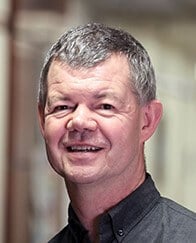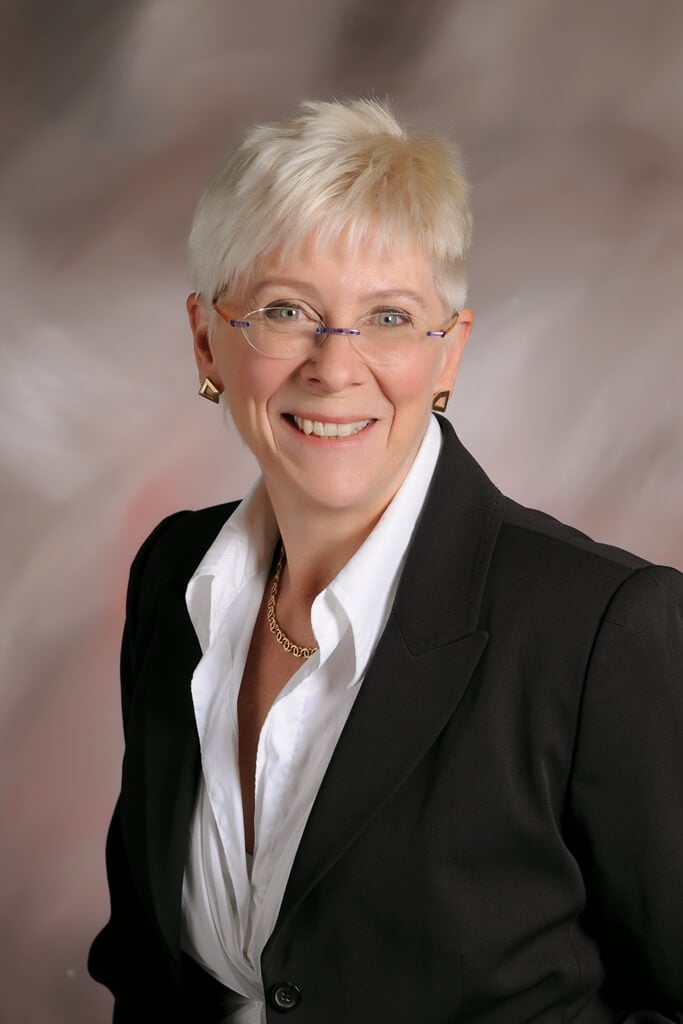Conversations with the new Trustees
 T. Michael Redmond, PhD, FARVO
T. Michael Redmond, PhD, FARVO
Biochemistry/Molecular Biology Section
National Eye Institute/NIH
What do you look forward to the most about being a member of the ARVO Board of Trustees?
I hope to serve by advancing the mission of ARVO and furthering its impact on biomedical research and health in these critical times for both science and health. I think that ARVO must be in the vanguard of supporting continued investment in research and in translating advances into treatments for eye disease for all, all over the world. Because ARVO truly is an international society, it must speak with an international voice. So, I look forward to serving in all these ways.
My prior experience as a member of the Annual Meeting Planning Committee (AMPC) gave me an appreciation of the huge amount of work by ARVO staff and AMPC members that goes into organizing the scientific content of the Annual Meeting from the time an abstract is submitted to the final program. The mission of the Board of Trustees is at a higher level, encompassing the whole enterprise of ARVO, including the Annual Meeting, ARVO journals, supporting eye and vision research and training the next generation of eye and vision researchers.
Tell us about your research/background?
After training in Dublin, Ireland and Charleston, S.C., I joined the National Eye Institute where I have been for 30-plus years in its Intramural Research Program. I am a basic scientist working in the field of retina and retinal pigment epithelium (RPE) biochemistry and molecular biology, focusing on visual cycle retinoid metabolism and its role in inherited retinal dystrophies. In addition to retinoid/carotenoid biochemistry, we study mouse mutants to model RPE65 and related retinal dystrophies and requirements for chromophore in the development and maintenance of photoreceptors, especially cones. It has also been my privilege to collaborate with clinical colleagues on translational research and therapy related to my basic research, interactions largely fostered at ARVO. My lab also investigates gene regulation and signaling pathways in the RPE and microRNA- and long non-coding RNA-mediated regulation of gene expression in the RPE.
How have you been involved since joining the Board?
I have taken part in Board meetings directing the governance of ARVO. There are complex decisions to be made to ensure the future of ARVO and its mission. A really inspiring and heartwarming, yet bittersweet duty was selecting the incoming Member in Training (MIT) Board member. Inspiring because each and every candidate could bring exciting talents to the task; heartwarming because with MITs like these, ARVO’s future is ensured and bittersweet because only one will be selected, though any one of the others would have been an equally good choice.
 Maureen Maguire, PhD, FARVO
Maureen Maguire, PhD, FARVO
Clinical/Epidemiologic Research Section
Professor, University of Pennsylvania
What do you look forward to the most about being a member of the ARVO Board of Trustees?
As I gain a fuller understanding of the scope of activities and business aspects of ARVO, I hope to contribute to plans and policies for meeting the needs of ARVO members. The membership, modes of communication, approaches to publication, educational practices and methods for dissemination of information are all changing rapidly and it will be a challenge to keep pace with these changes. Also, after meeting the other Board members at our first meeting in Baltimore, I look forward to working with such a diverse and committed group of people.
Tell us about your research/background?
While completing my doctoral degree in Biostatistics at the Johns Hopkins University Bloomberg School of Public Health, I took a job with the Wilmer Clinical Trials and Biometry group. I had the opportunity to work with some outstanding biostatisticians and epidemiologists while providing data analysis for many of the Wilmer faculty members, as well as conducting site visits to the clinical centers for the Macular Photocoagulation Study. Those experiences were so interesting and rewarding and I was thrilled to be appointed to the faculty of the Wilmer Institute, Johns Hopkins School of Medicine after finishing my PhD in 1983. During my years at Wilmer, I worked in the coordinating center for the MPS, the Glaucoma Laser Trial, the Collaborative Corneal Transplantation Studies, and the Bacterial Keratitis Study.
In 1994, Stuart Fine, MD, recruited me to the Department of Ophthalmology, University of Pennsylvania to collaborate with the research faculty, lead design and analysis of clinical trials and provide mentoring to house staff and junior faculty on clinical research. Since then, the majority of my work has been in the prevention and treatment of age-related macular degeneration (AMD), with the highpoint of leading the coordinating center for the Comparison of AMD Treatment Trials. Other collaborative research with my colleagues has been in retinopathy of prematurity, diabetic retinopathy, inherited retinal degenerations, preschool vision screening, glaucoma, dry eye disease, multiple sclerosis and myopia.
How have you been involved since joining the Board?
Aside from the standing meetings of the Board, I have been participating as the Board Liaison to the ARVO Ethics and Regulations in Human Research Committee. I was pleased to be appointed to work with this committee because as part of my responsibilities in leading coordinating centers for multicenter clinical trials, I spend considerable time fulfilling the reporting and documentation requirements of the National Institutes of Health (NIH), Food and Drug Administration, Institutional Review Boards and the Office of Human Research at the University of Pennsylvania. The committee is now considering how best to address a new NIH definition of a clinical trial. There are many special requirements for grant applications, oversight and reporting for NIH clinical trials and these requirements may not have been developed with the type of human behavioral research that many ARVO members conduct in mind and could have a negative impact on productivity. I have been impressed with the active dialogue among the committee members.
 Maureen McCall, PhD
Maureen McCall, PhD
Visual Neuroscience Section
Professor, University of Louisville
What do you look forward to the most about being a member of the ARVO Board of Trustees?
I look forward to participating in enhancing the ARVO member experience both at the Annual Meeting and throughout the year. I will be working with our Members in Training Committee and I look forward to interacting with our newest members as they find their way in research and participation in ARVO. I hope to help them better understand the process of abstract submission so that they find the best section and the best audience for their research presentations.
Tell us about your research/background?
I have been a member of ARVO since I was a graduate student at the University of Maryland, College Park, where I studied Visual Psychophysics. I received a Master’s degree and then moved into electrophysiology for my PhD from the State University of New York at Albany. Electrophysiology has been my passion ever since. I have recorded visual responses from almost every visual center and finally as a postdoc found my home in the retina, where I have been studying the visual responses and the circuitry that leads to the ability of the retinal ganglion cells to encode the visual environment. I am equally interested in the normal circuit and in the changes in the circuit that occur in degenerative diseases. At this time, the lab works on the retina of both mice and pigs. JJ
